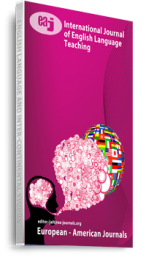Students and researchers of different disciplines — such as sociology, psychology, health care, nursing, education, arts and humanities, and so on — employ qualitative methods for their research project. In education, TESOL researchers increasingly use qualitative research enquiry. This study aimed to appraise the contributions of qualitative research to TESOL. In order to achieve this aim, the study demonstrated a critical understanding of theoretical debates in qualitative research. Then, two articles related to English language teaching to speakers of other languages were chosen with a view to arguing that qualitative research paradigm contributes to TESOL more than any other research paradigms. The key findings were characteristics of qualitative research: description-understanding-interpretation, dynamic, no single way of doing something- multiple realities, inductive thinking, holistic, in-depth study, words-themes-writing, and non-linear; existence of nexus between interpretivism and qualitative research; and positive impacts of qualitative research on TESOL.
Keywords: Contribution, Interpretivism, Meaning, Perspective, Qualitative research, TESOL

